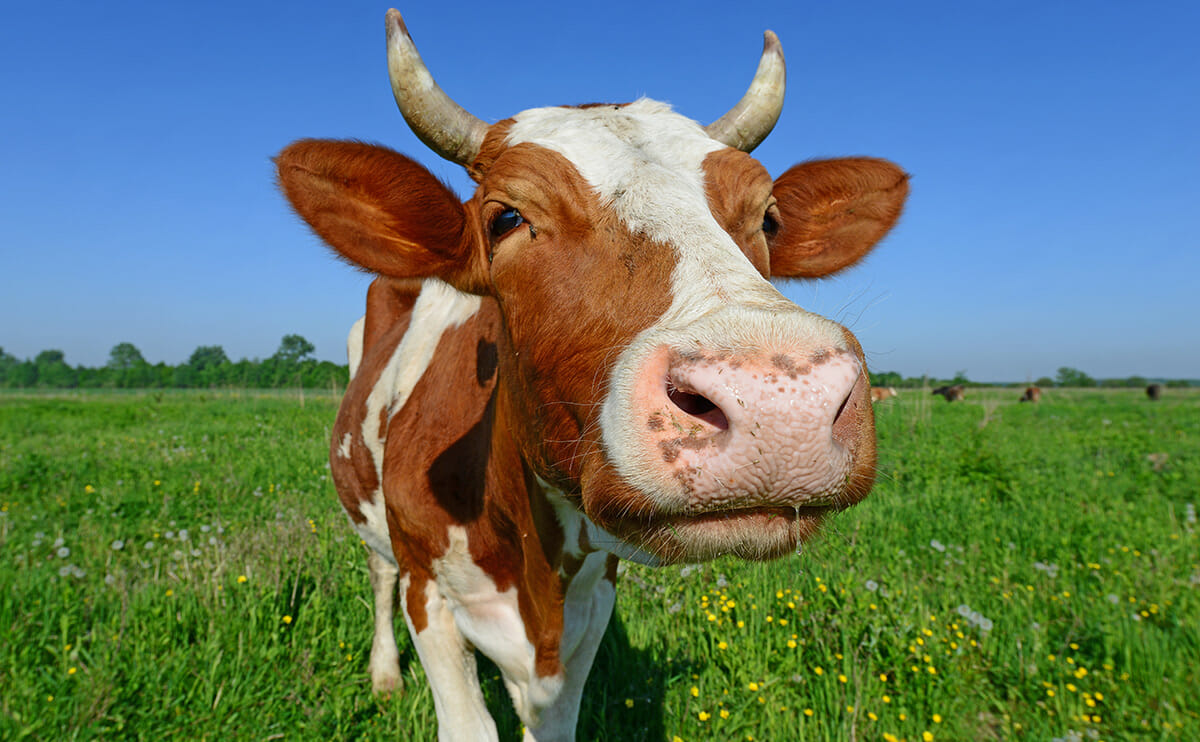Cows have shaped our language in ways that we often don't think about.

[mf_h5 align=”left” transform=”uppercase”]’Til the Cows Come Home[/mf_h5]
One of the older cow-based expressions, likely based on the late (or early) hour when cows in the field will return to the barn to get milked. Alternate theories point to locales where cattle are sent to pasture in the summer and then brought back in the autumn; either way, the expression has evolved to mean “an indeterminately long time, possibly forever.” The Oxford English Dictionary points to its first printed use in 1610 by Shakespeare contemporary Alexander Cooke: “Drinking, eating, feasting, and revelling, till the cows came home, as the saying is.” It is now used mostly by mothers telling their children how long they can keep asking for an iPhone 6 before they’ll get one.
[mf_h5 align=”left” transform=”uppercase”]Don’t Have a Cow[/mf_h5]
Bart Simpson made it his catchphrase, but the saying’s origins go deeper than The Simpsons. Last summer, the OED pinned its first appearance to a Texas newspaper in 1959. How the phrase became synonymous with chilling out or calming down is obscure, but it’s often linked to the British idiom “don’t have kittens” — both events that would understandably cause a human to react with a bit of hysteria in real life. The phrase started making a vigorous pop culture showing in the ’80s. You may remember Jake Ryan saying it to his girlfriend at the dance in 1984’s Sixteen Candles, or you may just remember it from your talking Bart Simpson doll along with…
[mf_h5 align=”left” transform=”uppercase”]Cowabunga![/mf_h5]
Another Bart favorite and the rallying cry of the Teenage Mutant Ninja Turtles, it turns out that this exclamation doesn’t have anything to do with the barnyard. It was coined in the ’50s by Eddie Kean, writer of the Howdy Doody Show, originally spelled “kowabonga” and meant as a kind of all-purpose cuss the show’s Chief Thunderthud could say when he was mad or frustrated. The fun-to-yell word was adopted by California surfers, then immortalized for a younger generation by pizza-eating, party dude Ninja Turtle Michelangelo.
[mf_h5 align=”left” transform=”uppercase”]Cash Cow[/mf_h5]
This piece of business jargon emerged in the ’70s, but the less sexy-sounding “milch cow” (a cow kept for milk) has meant roughly the same thing since 1601: A dependable source of profit for the owner. A few claim to have coined the phrase “cash cow,” including management consultant Peter F. Drucker and the Boston Consulting Group.
[mf_h5 align=”left” transform=”uppercase”]Holy Cow[/mf_h5]
The trademark of legendary baseball announcers Harry Caray and Phil Rizzuto has its origins tightly tied to the sport, evolving in the early 20th century probably as an alternate to foul language. It also follows the long tradition of American exclamations like holy smokes, holy mackerel, holy Moses, and holy moly that are meant to convey surprise, amazement, or alarm — a construction widely popularized by the 1960s Batman TV show (Holy complicated origins, Batman!).
“Holy cow” is also an obvious reference to the Hindu worship of cows, and along the same lines of “sacred cow,” the American term dating back to the early 20th century referring to ideas or institutions that are so venerated they are immune to questions or challenges. Kind of like the farm-based idioms we still use long after their original meanings have been forgotten.
Extremely interesting. I’m not sure ‘Don’t have a cow!’ doesn’t have other origins though. I’m still searching.
Is there a cow in Texas